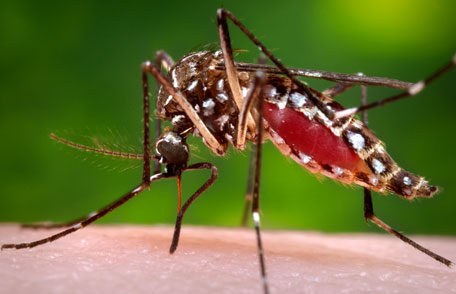
By Justina Auta
The National Malaria Elimination Programme (NMEP) says nine eligible Sahel states have been targeted for the Seasonal Malaria Chemoprevention (SMC) in 2020 to eliminate the scourge of malaria.
The 2018 World Malaria report shows that 228 million cases of malaria worldwide , with 53 million annual cases in Nigeria contributing to 25 per cent global burden, resulting to 81,640 deaths annually, which accounts to 19 per cent global malaria deaths.
National Cordinator, NMEP, Dr Audu Mohammed disclosed this during a meeting with stakeholders on review of 2019 round of SMC and proposed plan of 2020 round of intervention.
Mohammed, represented by the Head, Case management, NMEP, Dr Nnenna Ogbulafor said the exercise was already in taking place in Jigawa, Katsina, Sokoto, Yobe and Zamfara.
He added that Bauchi, Borno, Kano and Kebbi states were added for the SMC programe to reduce malaria burden to pre-eliminatation levels and bring malaria-related mortality to zero.
The NMEP boss said the SMC scale-up exercise is focused on expanding its implementation so that more children would benefit from the exercise aimed at reducing malaria cases and deaths in the country.
“By 2020, we will cover the nine Sahel states. Last year, we did six states and it was not a full coverage, but in 2020 we will have nine states, which will give us more impact.
“These are states that have peak period of the malaria disease especially during rainy season, which starts July to October,’’ he said.
The NMEP boss noted that progress had been recorded since the adoption of SMC as one of the drug based prevention strategies to reduce malaria burden in line with the WHO recommendation.
“There are also remarkable progress in the country’s general malaria situation evidenced by the consistent reduction in malaria prevalence according to malaria Indicator Surveys (MIS) and Demographic and Health Survey (DHS).
“The national malaria prevalence dropped from 42 per cent to 23 per cent from 2010 to 2018.
“There are also noticeable improvements in testing rates, use of recommended antimalarial, uptake of intermittent Preventive Treatment by Pregnant women (IPTp) and the use of Long Lasting insecticidal nets (LLINs),’’ he said.
He, however, noted that in spite of the laudable improvement, the 2019 World Malaria Report show that Nigeria had the highest burden of malaria globally, hence the need for stakeholders to strive towards eliminating the disease.
Dr Olusola Oresanya, Country Technical Coordinator, Malaria Consortium, an international Non Governmental Organisation reiterated the commitment of the organisation towards eliminating malaria in the country.
“We are working in Nigeria to support NMEP to scale up SMC across the nine states that are due to be eligible for it at the moment.
“Scaling up started in 2014 in some few LGAs, over the years we have increased the number as funds were available.
“Because we now have more fund and donors coming to support Nigeria, we will now scale up SMCs across the nine states in the Sahel region.
“Ultimately, our desire is to cover everywhere so that we will not leave any child behind,’’ she said.
Oresanya, therefore called on the government at all levels to take up the responsibility of the intervention exercise as the process was cheap, would save more lives and provide jobs for the workforce.
“We hope that over the next few years, the states will be able to take up this interventions themselves because it is quiet cheap as it cost less than $4 to cover a child.
“And it is very effective intervention so we are hoping that the states will take it up from now because donors are fatigue in terms of bringing money everytime and are now asking that what is the government doing,’’ she said.
Also, Dr Jamilu Nikau, of NMEP, while presenting an overview of achievements, challenges and impact of SMC implementation in 2019 said the exercise would prevent 75 per cent of malaria episode in the country.
Nikau, also added that it would also result in a decrease in child mortality of around one in 10 children nationwide. (NAN)
